Gradation
ENGLISH PHONETICS AND PHONOLOGY I
GRADATION
The Use of Strong and Weak Forms in English
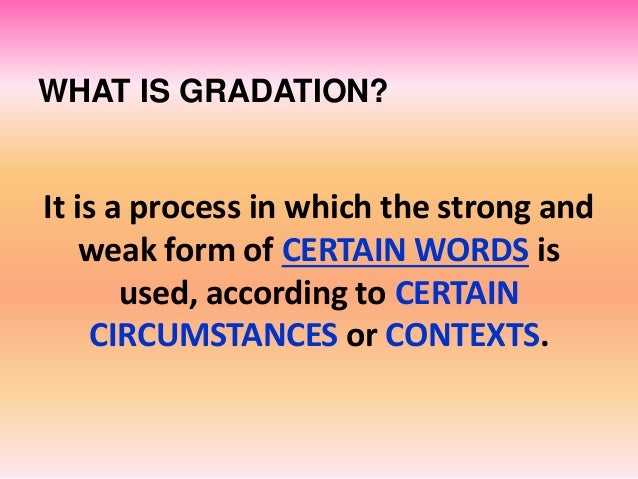
Talk does not normally consist of single words as it often consists of a vast number of
words connected together
in phases, clauses, sentences, etc., that is, in whole texts of discourse. In most talk words pile upon each other and they affect the pronunciation of each
other. This means that certain words
have at least two
possible pronunciations: a strong form with a strong
vowel, and a weak form with a weak vowel. The choice between a strong
or weak from
depends upon the role a word has in an utterance. This
is a choice at the level of
discourse which is then reflected in the degree of
prominence
we give a word within a
phrasal clause. As a general rule, lexical or content words like nouns,
verbs, adjectives and adverbs are made prominent because of their importance in a message. Grammatical or structure words like
conjunctions, prepositions, determiners
and
auxiliary and modal verbs are usually pronounced without any prominence because
their role is
basically to provide
structure to phrases
and clauses in utterances. 2
All of us are aware of the fact that, more
often than not, one and the same English word may be pronounced in more than one way. This applies not only to the so-called 'small'
words like and (/ænd, ənd, ən, nd, n/) but also to 'bigger' ones such as particular
Learners who aim at a native English accent must learn the weak form of function words and regard them as the regular pronunciation, using the strong form only on
those limited occasions, where they are used.3
Weak forms are an essential feature
of English pronunciation.
Students who wish
to acquire a high level of oral performance must be aware of their existence, since failure
to produce them
will affect English rhythm quite considerably.4
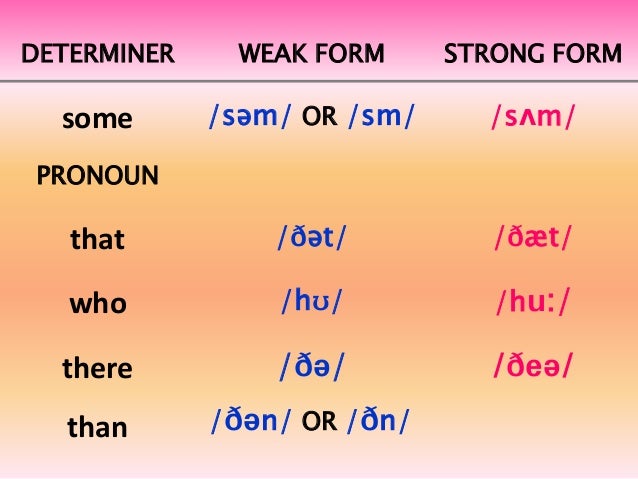
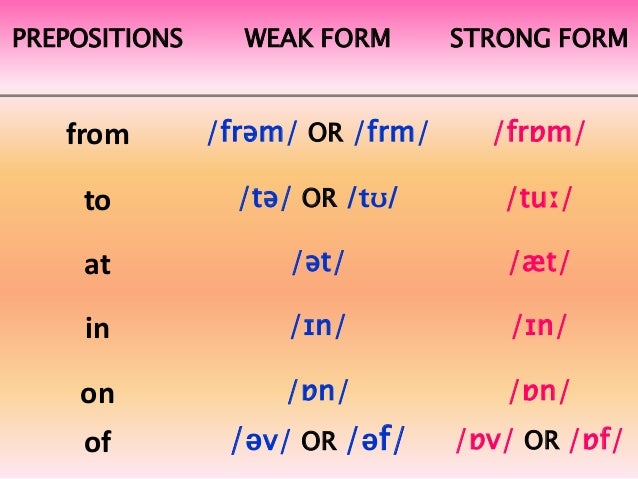
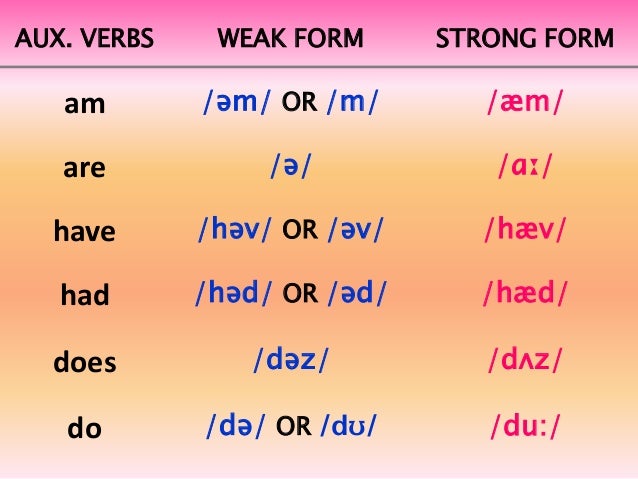
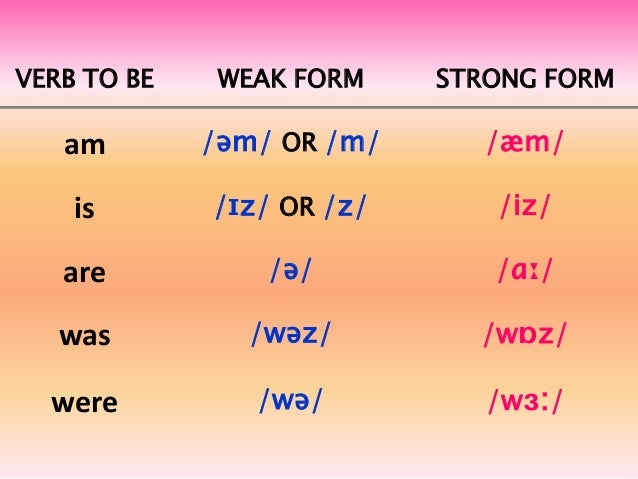
Strong forms
These words are used in the strong forms in the following cases.Auxiliaries and verb to be.
1. Before a pause
2. When they are stranded in a sentence
3. When thet are followed by the weakest form of not
4.In Tag-questions
5. For emphatic affirmatives
6. In short questions (wh + aux/be + unstessed pronoun)
Prepositions.
1. To show contrast
2. When they are stranded
3. unstressed syllable + prepositions + unstressed pronouns (this case is optional)
Pronouns
1. To show contrast
2. Compound objects
3. Compound subject
4. Appositive
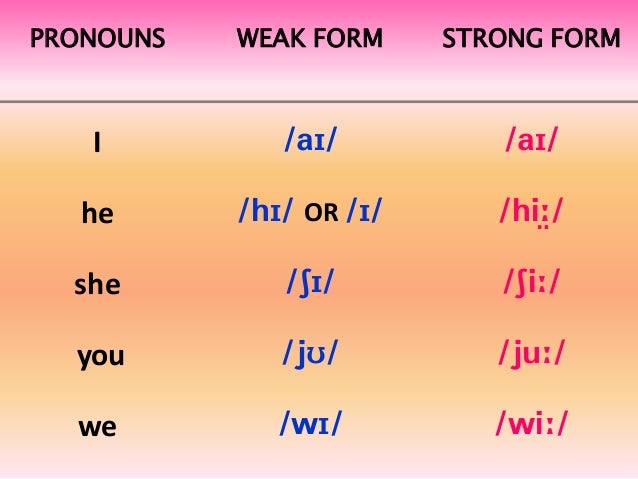
Comentarios
Publicar un comentario